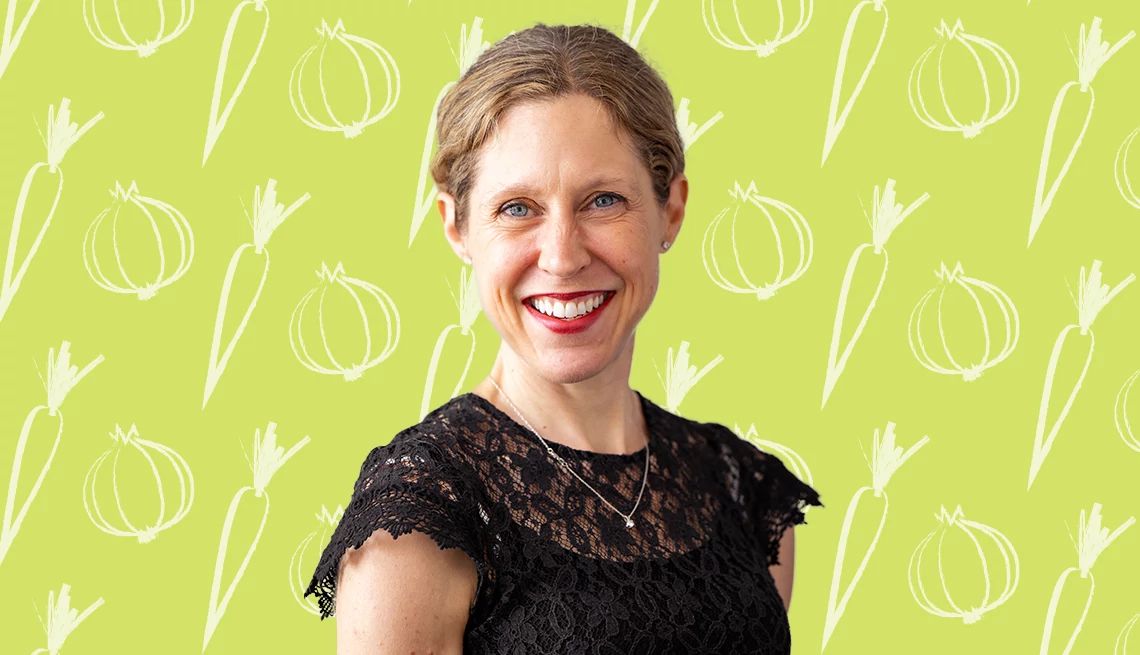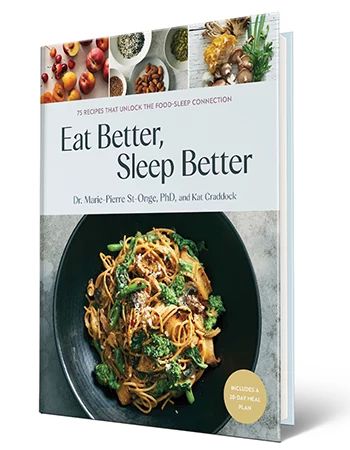AARP Hearing Center


If you’re looking to feel more rested, start with breakfast.
Research — and lots of it — shows that what we eat can affect how we sleep.
But healthy sleep can be a struggle for many older adults. Insomnia, sleep apnea, pain and prescriptions can all lead to a poor night’s rest, which is linked to a host of negative health effects, including weight gain, heart disease, stroke and diabetes.
That’s why Marie-Pierre St-Onge, an associate professor of nutritional medicine at Columbia University Medical Center in New York, is trying to help us all sleep better.
After publishing more than 175 scientific studies on nutrition, sleep and health, she has written her first book, collaborating with recipe developer, SAVEUR CEO and editor-in-chief Kat Craddock on Eat Better, Sleep Better: 75 Recipes and a 28-Day Meal Plan That Unlock the Food-Sleep Connect.


“Without good sleep, our bodies — especially our brains — stay tired and can’t recuperate,” St-Onge writes. “As a result, we get sick much more easily. Our immune system is weakened, which increases the risk for a host of acute and chronic illnesses that can affect nearly every organ system, from our brain and heart to our gut and skin and everything in between.”
It’s probably no surprise that tryptophan is one of the stars in Eat Better, Sleep Better. This essential amino acid is crucial for your body’s production of melatonin, the hormone that helps you fall asleep and ensures you stay asleep all night. Tryptophan also helps the body make serotonin, a neurotransmitter involved in sleep regulation.
“This amino acid can only be obtained from food. It’s not an amino acid that we can make in the body,” St-Onge notes.




































































You Might Also Like
Wake Up More Refreshed With Our Smart Guide to Sleep
43 tips to help you fight those restless, endless nights and get the slumber you need
Doctor, How Can I Lose Weight?
A physician's advice for dropping a few pounds
18 Ways You’re Using Your Microwave All Wrong
Maximize efficiency, safety and taste